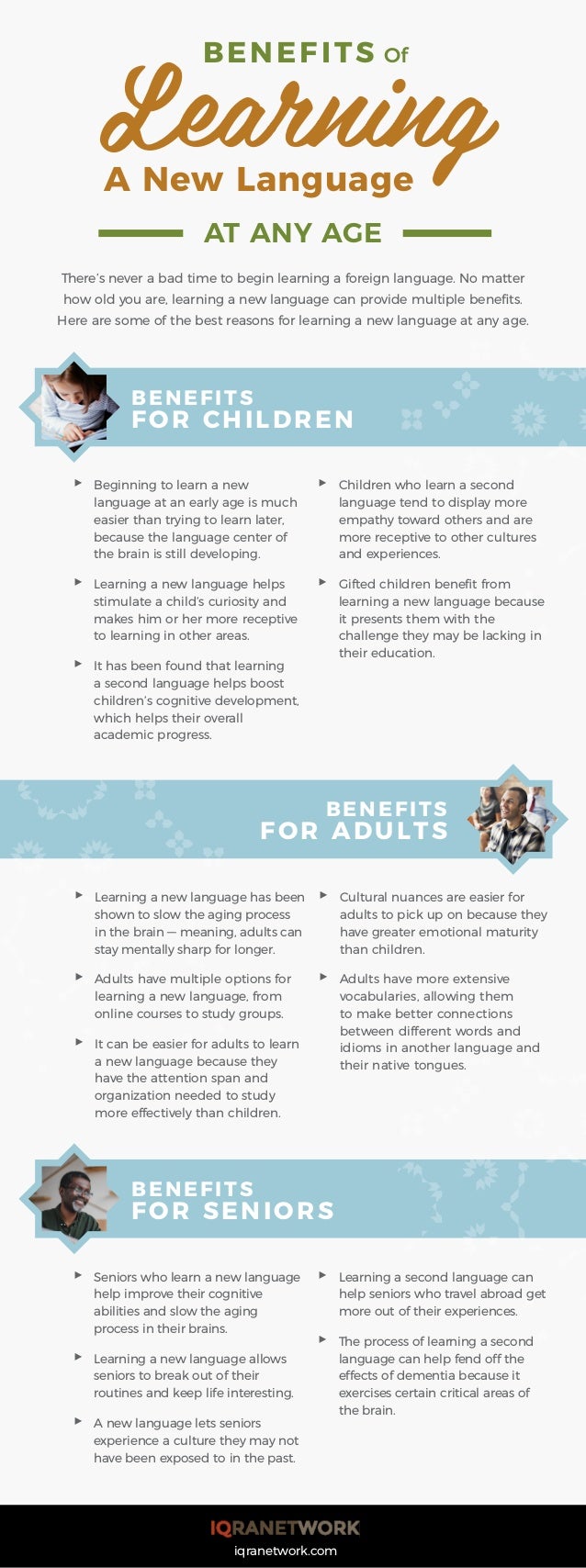Is There an Age Limit for Learning a Language?
If you decided today to learn a second language, would it be too late? Is it just a waste of time? Are you too old to learn a language? The critical period hypothesis is a real phenomenon. Knowing what it is and using it to your advantage is how you can succeed with language learning.
It’s a common myth that people can only learn a language when they’re young. While young children acquire language faster than adults, adults can still achieve fluency in a foreign language. But what is this period and how does it affect adult performance in foreign language learning programs? The theory of the“critical time period” for learning acquisition attempts to answer this question. By understanding what this period is, you can focus on your language learning strengths and rapidly achieve fluency in your target language.
What is the Critical Period Hypothesis?
The “critical period hypothesis” (CPH) is a claim that there is a specific age range where people are better able to acquire languages. It’s based on the observation that children are exceptional at language acquisition while adults often struggle and fail learning languages. The age range of the critical period hypothesis varies with 10 – 13 years being the final years where children can easily learn languages. After that age, this learning ability declines. Statistics show that this happens to teens until they reach adulthood.
Babies Have the Best Learning Method
This theory rests on the observations of babies interacting with the world and the approach they take to learning. Babies need to know as much about the world as possible to survive. This means learning as much as possible over a short time. And this is why psychologists tend to view babies as “little geniuses.” In a way, it’s true. Babies are always taking in the world around them and analyzing it. No more is this evident than with language.
Studies show that babies are gifted at learning languages. They’re able to hear all the sounds of every language in the world. Over time, their brains prune out this ability, and they’re only able to focus in on their primary language or languages. And once they reach the age of three, they have a strong foundation for their native language with a solid grasp of grammar. Then their language skills steadily diminish until they are between 10 and 13, where it rapidly decreases.
The source of the difficulties for young children face when trying to learn a foreign language through their teens isn’t quite clear. Many scientists believe it’s could be a result of puberty and the changes in the brain involved with that. Others argue that it stems from other demands or a lack of interest in learning.
Either way, it’s important to note that ability doesn’t equal determination. You can still learn a language successfully. Knowing about the critical period hypothesis just helps you navigate your options.

Why the Critical Period Hypothesis Matters
A lot of adults blame the critical period hypothesis for their language learning struggles. Rather than using it as an excuse, learn how it affects your studies. A principal argument of the critical period hypothesis focuses on the ability to speak. Children don’t have accents while many adults do. Learning a language after the critical age means you most likely will have an accent.
Accents are essential as they can influence the ability of native speakers to comprehend you. If your accent is too noticeable, then even if you’re able to learn the language and speak it, people will have difficulty understanding you.
Another vital component to grasp as that adult brains process language differently. Children acquire language. Adults have to learn it. While you can mimic the process that children go through to learn a language (such as immersion), there will still be a learning component involved.
Does the Critical Period Hypothesis Affect You?
It’s important to realize that the critical period is just a hypothesis. Don’t lose hope if you’re above the target age for optimal language acquisition. There are many in the field of linguistics that argue against the notion of a “critical” time to learn a language as there are too many variables at play.
It is genuinely agreed upon that babies can hear sounds and make sounds that adults do not naturally hear or make. That is not to say that adults cannot learn to recognize them through practice and conditioning. It’s just that an adult monolingual brain has adapted to tuning out other languages. While babies can acquire language at exceptionally high rates, it often takes them years to master it. Adults can learn complex mechanics like grammar easily through study.
Adult learners will have to work around their accent. Adults can also help alleviate the “burden” of an accent when communicating in a foreign language. This takes time, patience, and practice. However, adults have been exposed to unfamiliar sounds through intensive training sessions and have learned to register them much later in the future. While children can quickly adapt and learn accents through to the end of the critical period hypothesis, it mean that it’s impossible for adults.

How Can Understanding the Critical Period Hypothesis Help You?
Scientists don’t entirely know whether or not this critical period hypothesis is correct, despite its initial inception 50 years ago. As it continues to remain a debatable theory, the important aspect of the theory to remember is how it affects your journey to fluency in your target language.
If you’re someone outside of the “critical period” for language acquisition, realize that you will have to work hard to achieve native levels of fluency. However, that doesn’t mean that fluency isn’t’ achievable. It also doesn’t mean that it will take you longer to learn a language than a child. Part of successfully learning a foreign language comes from interest and motivation.
You’ll find that with the right program, you can rapidly achieve fluency far faster than a child, even if you have to work harder for it. And yes, you will most likely have an accent, but that doesn’t mean that native speakers in your target language won’t understand you. However, if you have children of your own or plan on it and want them to be bilingual, knowing the critical period hypothesis is very important for planning out how to teach your child a foreign language.
Knowing that young children have a short window to rapidly and efficiently learn multiple languages should be a motivating factor to help expose children to more than one language very early on in their lives. As science has proven that not only can they handle it, but they benefit greatly from it.







